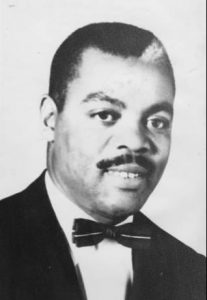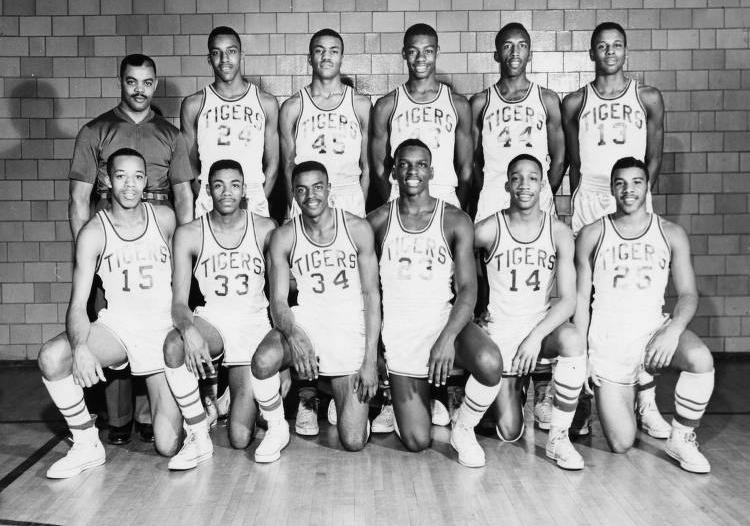
Photo info …
Credit: Indianapolis Recorder Collection, Indiana Historical SocietyView Source
(May 30, 1915—Dec. 20, 2003). Ray Crowe coached to the first state basketball championship won by an all-Black school in U.S. history, part of a run of success that made his team a beacon of hope during a racially fraught era in Indianapolis.
The second of 10 children, Crowe was raised on a farm. He attended Whiteland High School, where he was the only Black player on the basketball and baseball teams. He was the older brother of George Crowe, who was the first Indiana Mr. Basketball and a major league baseball player. Crowe became a multi-sport star at Indiana Central College () before taking over as Crispus Attucks’ coach in the fall of 1950.

Prior to his arrival at Attucks, the Tigers played a passive style, not wanting to feed into stereotypes of African Americans being undisciplined. Crowe switched to an aggressive style that paid off immediately. In the state tournament that season, Attucks won its first regional title, setting off a massive celebration . In 1955, in addition to setting the national precedent for all-Black schools, the Oscar Robertson-led Tigers became the first Indianapolis team to win a state basketball championship. Fans cheered the team and busloads of fans as police escorted them from Butler Fieldhouse (now ) along Meridian Street to , where Mayor greeted the team. The procession then moved on to Northwestern Park, where an estimated 25,000 fans continued the celebration.
The next season they became the first undefeated state champions in Indiana history. Mayor Clark presented Crowe with an oversized “key to the city” after Attucks won its second state title and declared, “I’m very happy to do this. You not only won the state championship but displayed extra sportsmanship. Indianapolis is very proud of Crispus Attucks tonight.”
Crowe coached one more season and then, in 1957, became the school’s athletic director. In 1966, he was elected to the Indiana House of Representatives as a Republican from the 26th District. He was elected with 15 other Republicans, including . After redistricting in 1970, Crowe represented the smaller 42nd District (from 1972 to mid-1975). While in the state legislature, he served as chair of the House Education Committee, pushing for desegregation of Indiana’s public schools.
A strong advocate for the improvement of education, he also was assistant director of the Indiana Department of Education. In 1976, Crowe became the first African American director of the Indianapolis Parks Department, a position he held until 1979. Between 1983 and 1987, he served as a Republican at large in the Indianapolis . He died at age 88.
Crowe’s career record of 179-20 remains the best seven-year run of any Indiana high school basketball coach. His legacy also transcends sports, as the success of his teams has been widely credited for advancing African Americans’ push for equality in Indianapolis. “These young ambassadors had done for the community what no amount of previous agitation had done. They held the city’s focus,” wrote historian Richard Pierce. “Attucks had moved the African American community to center stage.”
Johnson County officials and the (IHSAA) have taken strides to acknowledge Crowe’s importance to the history of Johnson County and basketball. Clark-Pleasant Community School Corporation broke ground on its new school, originally called Worthsville Elementary in 2019 and changed its name to Ray Crowe Elementary prior to its grand opening in 2021. The IHSAA announced its IHSAA Ray Crowe Excellence in Leadership Award to be awarded annually to the player who exhibits exemplary sportsmanship, ethical conduct, and moral character. And in 2023 the plans to place a historical marker, likely at Whiteland Community High School from where Crowe graduated in 1934.

Help improve this entry
Contribute information, offer corrections, suggest images.
You can also recommend new entries related to this topic.

